South Africa
‘Bantu’ as contained in the terminology ‘Bantu education policy’ is highly charged politically and has derogatory connotations.
It was an educational system designed in 1948 (the same year the first whites-only elections were held) primarily to ‘train and fit’ Africans for their role in the newly evolving apartheid society.
Even though designed in 1948, it became an Act five years later in 1953. Over this period, education was seen as prominently an apartheid restriction along with issues of ‘homelands’, urban restrictions, pass laws and job reservation.
The education of blacks (Africans) was clearly not a priority for the government. This was evident in the lack of attention devoted to the sector.
The government was spending about 15 times more on each white child compared with black students . R644 spent annually for each white student, with a paltry R42 budgeted for a black school child. White schooling was free, compulsory and expanding yet the black schools were everything opposite.
Yet the Bantu system meant to assuage the hustle of black schooling all but maintained and entrenched the status quo, relative to the neglect, underfunding and underdevelopment of black education.
H.F Verwoerd, the architect of the Bantu Education Act (1953), is quoted as saying: “There is no place for [the African] in the European community above the level of certain forms of labour. It is of no avail for him to receive a training which has as its aim, absorption in the European community.”
Bantu children in Soweto,South Africa. Ed Van Der Elsken (1968) by lluispanades pic.twitter.com/fy7AHMCofb
— Mankool Rotterdam (@Mankool_Rotterd) May 29, 2016
Muscling missions and tertiary segregation
Sometime in 1953, the state separated the wobbling Bantu system from its funding arrangement, instead ordering taxes paid by blacks to be used to educate them, yet another blow to the Bantu system.
In the same year, most black schools which were run by churches received an order to register with the state or be cut off from state aid and ,moreover, the control of African education was taken from them and the provincial authorities. The Catholics are on record as the only survivors of that directive as most churches closed their schools.
Then black students at the tertiary level were also hit with news that they could no longer attend white universities like Witwatersrand and Cape Town. The ‘racial’ directive was contained in Extension of University Education Act, Act 45 of 1959.
The Act set up separate ‘tribal colleges’ for black university students. The so-called ‘bush’ Universities such as Fort Hare, Vista, Venda, Western Cape were formed. The directive, however, did not pass without protests.
CLICK TO READ PART 1 OF THE SOWETO SERIES The 1976 Soweto Uprising [1] – The Underlying trigger
#OTD1976 Deputy minister of “Bantu Education” Dr Treurnicht, rejects applications by 5 Soweto schools to stop equal use of English&Afrikaans
— SteveBikoFoundation (@BikoFoundation) June 11, 2016
Two defining moments for Bantu
Relative relief came for Bantu at two levels, when the apartheid government in the 1960s saw the need for skilled African labour force, they expanded expenditure, the result, enrolment shot up in the sector.
The hitherto stifled and suppressed Bantu system hoped to see signs of improvement but there was too little change to notice. About a decade on, businesses forced government in 1972 to improve the Bantu again for the quality of human resource they required.
Then, at last, some significant change happened, the government that had asked people to go back to their homelands to school and as a result not built a school in Soweto for close to a decade (1962 – 1961) put up 40 schools in Soweto alone.
The 12,656 students in 1972 almost tripled to 34,656 students in 1976. Every one in five Soweto child was attending Secondary school. Behind the walls of those schools a buoyant youth culture was planted and nurtured in the hearts of students.
These students would on June 16, 40 years ago kick start was to be the beginning of the end of apartheid rule and the liberation of the “Rainbow Nation.”
Shaban Abdur Rahman Alfa
Web journalist, Africanews
Pointe Noire, Congo



![The 1976 Soweto Uprising [2] - Apartheid Bantu education policy](https://static.euronews.com/articles/335614/400x225_335614.jpg)

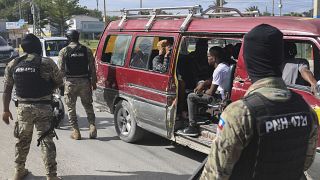
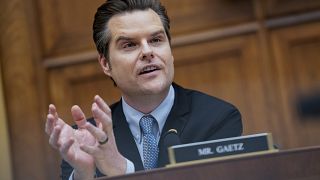
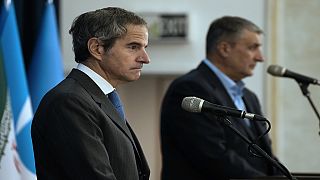
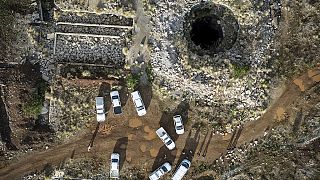

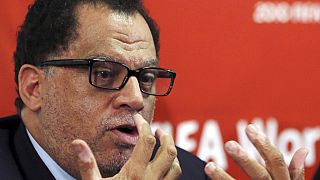
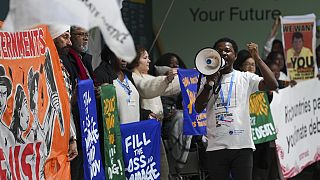
00:45
What next for Safa president Danny Jordaan?
00:30
England rugby team gear up ahead of their clash against Springboks
00:58
Baku: Protesters call for Gaza ceasefire during opening of COP29
01:09
South Africa's Tyla wins big at MTV EMAs
Go to video
Why Mozambique's election has sparked weeks of protests and a violent crackdown by police
01:08
Prince William wraps up a four-day visit to Cape Town dedicated to the battle against climate change